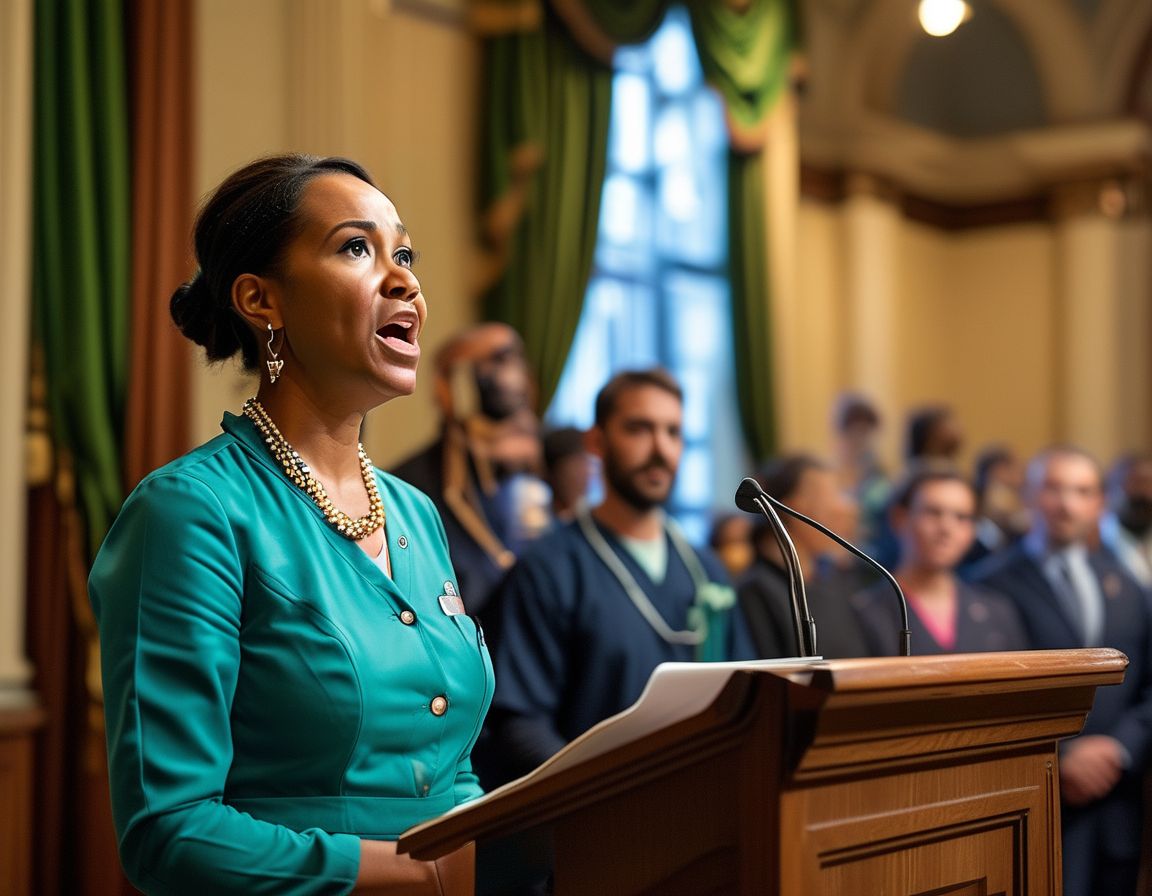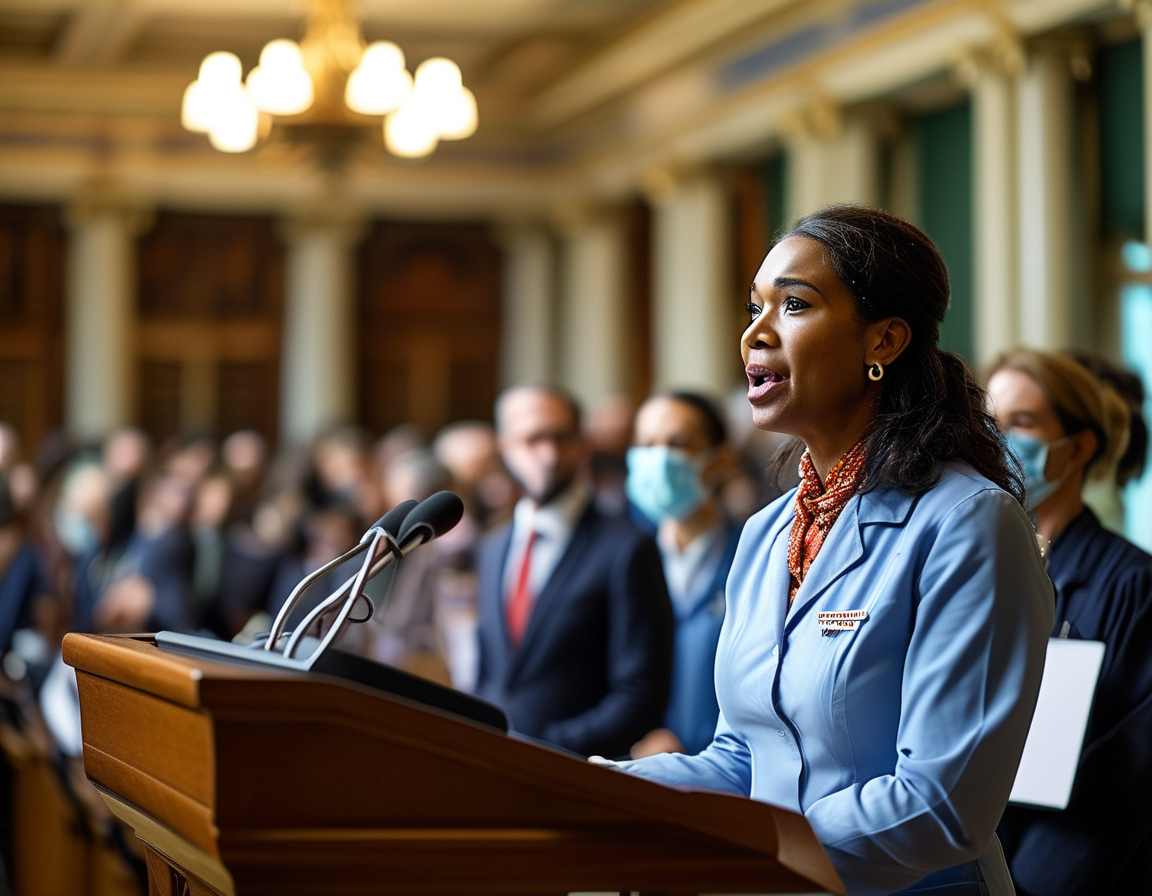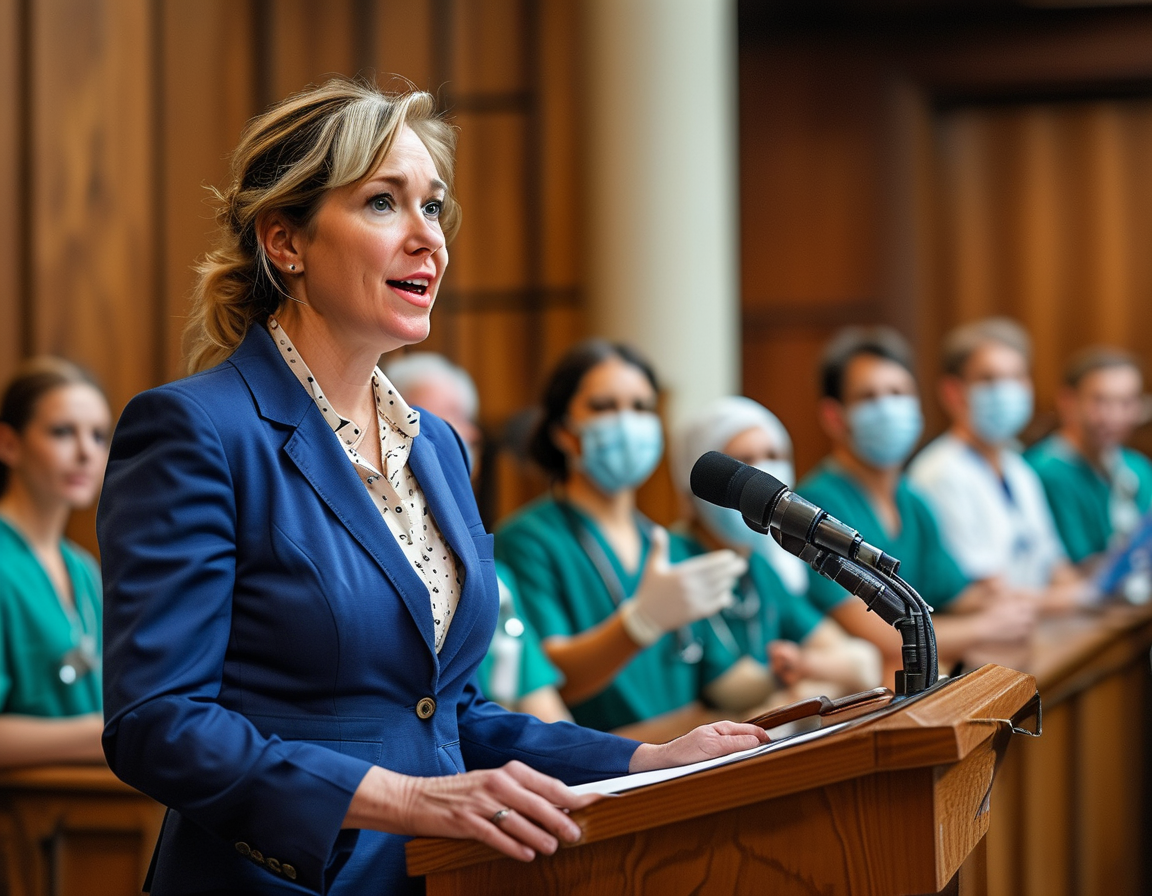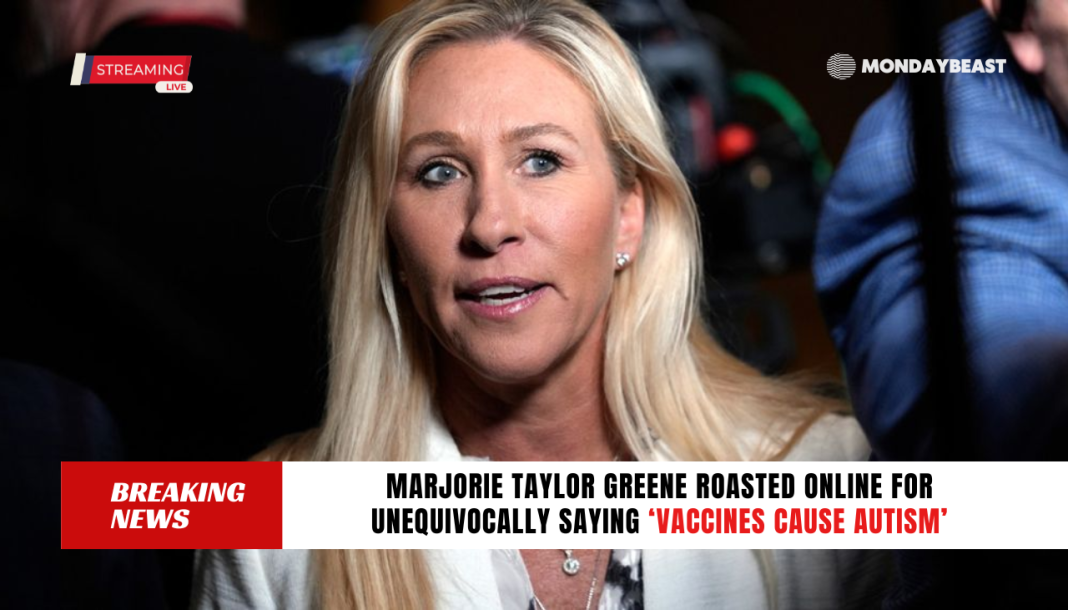What drives a lawmaker to persist in spreading misinformation?
Recently, Marjorie Taylor Greene publicly declared her belief that vaccines cause autism. This assertion sent shockwaves across social media. Greene’s comments ignited not just anger but a broader discourse on vaccine skepticism in America. Could it be that personal biases shape scientific understanding, or do these beliefs stem from something deeper?

Greene has long been a controversial figure in U.S. politics. Her skepticism towards COVID-19 vaccines gained traction during the pandemic. In a nation deeply divided over public health measures, her proclamations resonated with some while drawing fierce criticism from others. The question looms: how does personal conviction foster a culture of misinformation?
On a recent Monday, Greene took her anti-vaccine stance to new heights. ‘I fully believe vaccines cause autism,’ she tweeted. The harshness of her claim—“crimes against humanity”—evoked a wave of responses. For many, such assertions endanger lives and perpetuate unfounded fears.
In the backdrop of her claims is Robert F. Kennedy Jr. His similar allegations have made headlines for years. Kennedy, nominated for a potential role in Trump’s administration, has echoed and amplified these doubts about vaccines. Their alignment poses a troubling question for public health: how much influence do conspiracy theories hold among political leaders?

Almost immediately, the online community pushed back against Greene’s assertions. A quick fact-check from users pointed to extensive research disproving the vaccine-autism link. The scientific community has spoken on this issue repeatedly, yet skepticism remains entrenched among certain factions. How can such a divide remain when evidence is so clear?
Doctors and medical experts are consistently overwhelmed by these kinds of claims. One notable point came from Dr. Mike Varshavski, a physician and notable online health advocate. He criticized the foundations of Greene’s comments, connecting them to RFK Jr.’s erroneous claims from an earlier meeting. Misunderstandings piled upon misunderstandings can distort reality in alarming ways.
Critics of Greene emerged from various political backgrounds. Charles Fain Lehman, for example, pointed out a significant study involving hundreds of thousands of Danish children. He found no credible links between vaccines and autism. Statements from both physicians and researchers have echoed the same refrain: vaccines do not cause autism. Yet, how does one combat an ideology that feels emotionally charged?

Public trust in vaccines hinges on transparent communication. This case underscored the failures of some lawmakers to prioritize public health over personal beliefs. Are we witnessing a shift towards a more polarized discourse around health? The intersection of politics and science often leads to confusion, with figures like Greene playing pivotal roles in shaping narratives.
Soon after Greene’s own outcry, critical voices echoed through both social media and medical platforms. Yashar Ali made the argument that one discredited study should not alter established science. This sentiment shouted loudly across the digital expanse, illuminating the importance of evidence-based discourse. Are we turning back the clock on once-settled scientific facts?
The topic evokes strong emotions. Greene, a congresswoman from Georgia, represents a faction that believes in individual choice over public health mandates. This further ignites the nation’s ongoing battle regarding vaccine mandates and safety. Could this public viewpoint be steered by ideological beliefs rather than factual evidence?
Society must grapple with the consequences of vaccine denialism. Greene’s remarks are not isolated. They reflect a growing trend of skepticism, often fueled by online communities that thrive on conspiracy theories. As a result, trust in vaccines suffers. It’s a struggle that impacts countless families across America. Where do we go from here?
In closing, Greene’s incendiary statements bark back at established science. Yet, the backlash she faced could signal a shift in public opinion. As Americans reflect on her claims, the importance of relying on factual science has never been clearer. What will it take to restore faith in vaccinations amidst a barrage of misinformation? Time may be our only ally in this ongoing battle.




